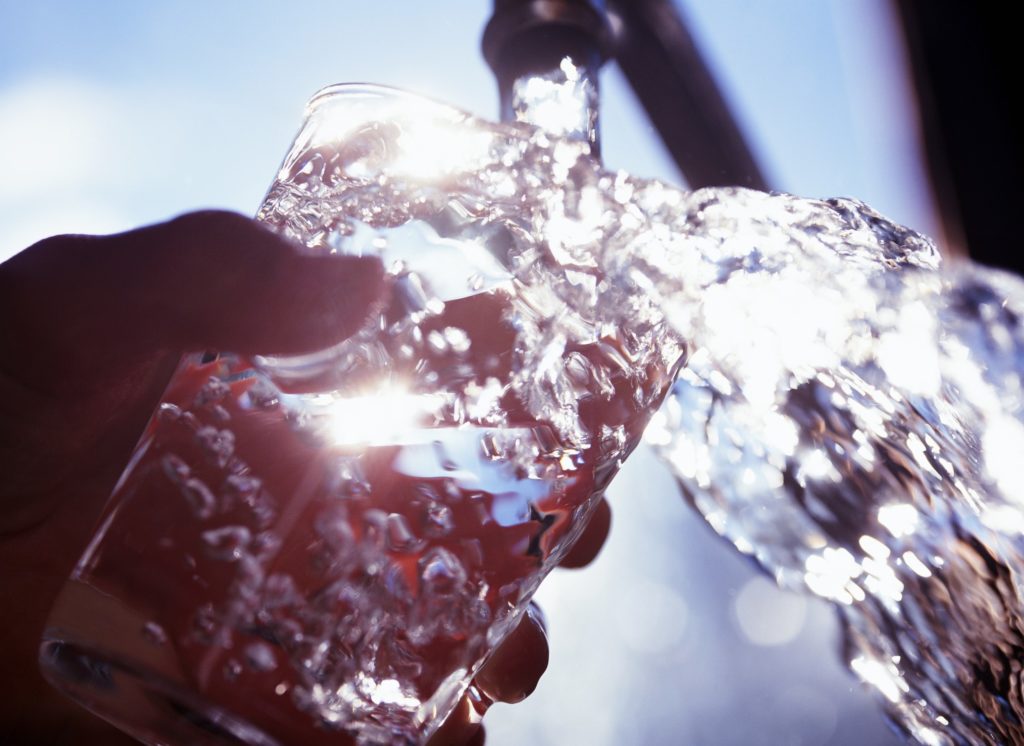December 23, 2020
DEP Milestone: It’s 2018, Murphy Administration Vows Return to Environmental Protection Leadership

In January 2018, Phil Murphy was sworn in as New Jersey’s 56th governor and among his Cabinet appointees was Catherine R. McCabe. Chosen to oversee the state Department of Environmental Protection, she was charged with safeguarding New Jerseyans and the environment around them.
The following year, the Commissioner would have the opportunity to tout the DEP’s leadership on setting strict standards for the PFAS family of chemicals in the halls of Congress.
“In the absence of any national regulatory standard, in 2018, New Jersey became the first state to establish a Safe Drinking Water Act maximum contaminant level (MCL) for a PFAS chemical,” she told members of the Committee on Oversight and Reform in Washington during a July 2019 congressional hearing about PFAS.
PFAS – poly- and perfluoroalkyl substances – have been used in industrial processes in the United States since the 1940s because they repel oil and water and are highly resistant to high temperatures and chemical reactions.
New Jersey’s extensive and science-based research into the prevalence of these chemicals across the state found that PFAS compounds are pervasive in ground water, surface water, sediment samples, fish tissue samples, public water systems and private wells. Armed with that research, and with recommendations of the New Jersey Drinking Water Quality Institute, the DEP took action to set levels for perfluorononanoic acid (PFNA), perfluorooctanoic acid (PFOA) and perfluorooctane sulfonic acid (PFOS).
New Jersey stipulated an MCL of 13 parts per trillion (ppt) for PFNA in 2018, and later established MCLs of 13 ppt for PFOS and 14 ppt for PFOA.
On the Theory of Everything: One of science’s brightest lights was lost when Stephen Hawking died on March 14, 2018. The renowned theoretical physicist and cosmologist, 76, had lived with amyotrophic lateral sclerosis (ALS, also known as Lou Gehrig’s disease) for more than five decades.
And now, a look at 2018 …
In 2018, the new administration of Governor Phil Murphy vowed to reassert the state’s position as a leader in tackling difficult environmental problems.
“A stronger and fairer New Jersey accepts the reality of climate change, invests aggressively in renewable energy and upholds the goals of the Paris Climate Accord,” the governor declared in his Jan. 16 inaugural address, recognizing New Jersey’s long history as “a national model for protecting the environment and growing an economy fueled by innovation and ideas.”
In August, Attorney General Gurbir Grewal and DEP Commissioner Catherine McCabe jointly signaled a newly aggressive stance on environmental enforcement in the state by filing six major lawsuits over contaminated properties – the largest single-day environmental enforcement action in the state in a decade.
Additionally, in 2018, New Jersey became the first state in the nation to establish a regulatory limit for PFAS – a large class of synthetic chemicals linked to cancer and other adverse effects – setting a Maximum Contaminant Level for PFNA at 13 parts per trillion in drinking water. The action drew national attention and put New Jersey at the forefront of research and regulation of per- and polyfluoroalkyl substances.
###
 OFFICIAL SITE OF THE STATE OF NEW JERSEY
OFFICIAL SITE OF THE STATE OF NEW JERSEY